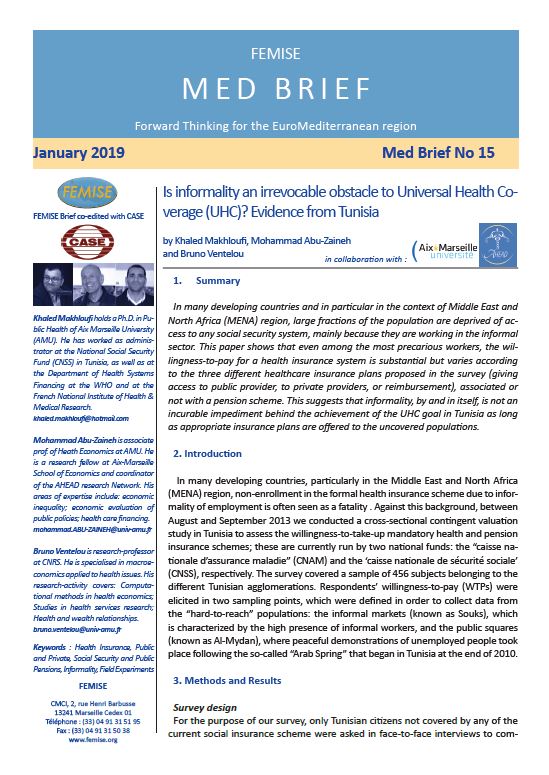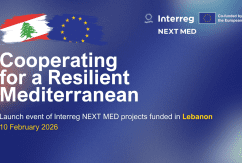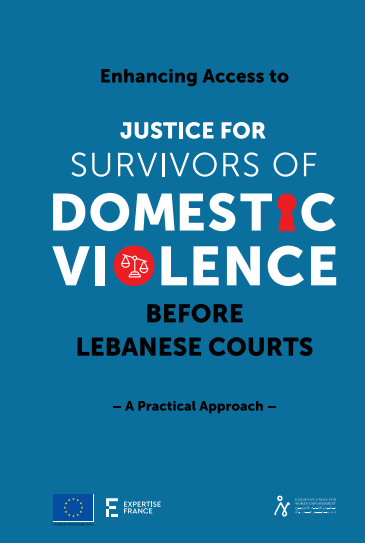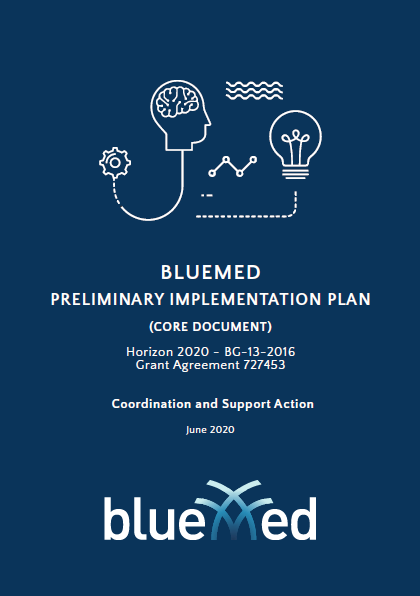FEMISE MED BRIEF n°15 – Tunisia : Is informality an irrevocable obstacle to Universal Health Coverage ?

In many developing countries and in particular in the context of Middle East and North Africa (MENA) region, large fractions of the population are deprived of access to any social security system, mainly because they are working in the informal sector. This paper shows that even among the most precarious workers, the willingness-to-pay for a health insurance system is substantial but varies according to the three different healthcare insurance plans proposed in the survey (giving access to public provider, to private providers, or reimbursement), associated or not with a pension scheme. This suggests that informality, by and in itself, is not an incurable impediment behind the achievement of the UHC goal in Tunisia as long as appropriate insurance plans are offered to the uncovered populations.
The FEMISE Policy Brief series MED BRIEF aspires to provide Forward Thinking for the EuroMediterranean region. The briefs contain succinct, policy-oriented analysis of relevant EuroMed issues, presenting the views of FEMISE researchers and collaborators to policy-makers.
Latest Publications
































 Syria
Syria 



